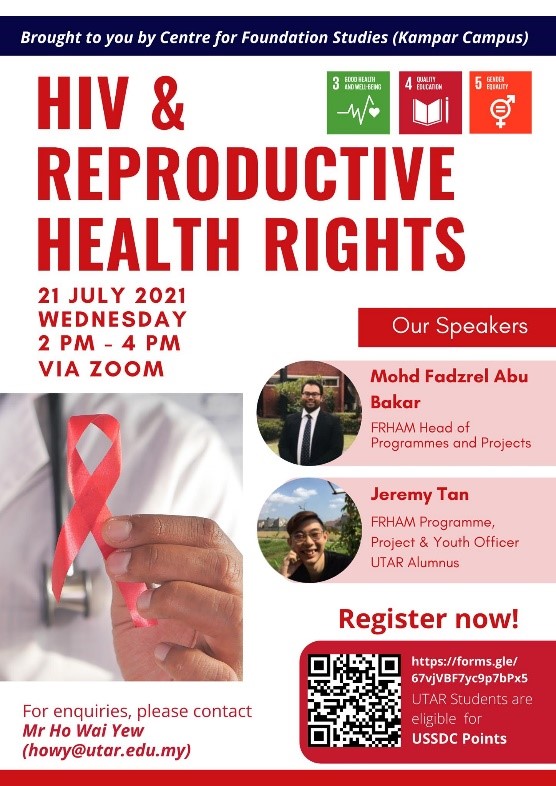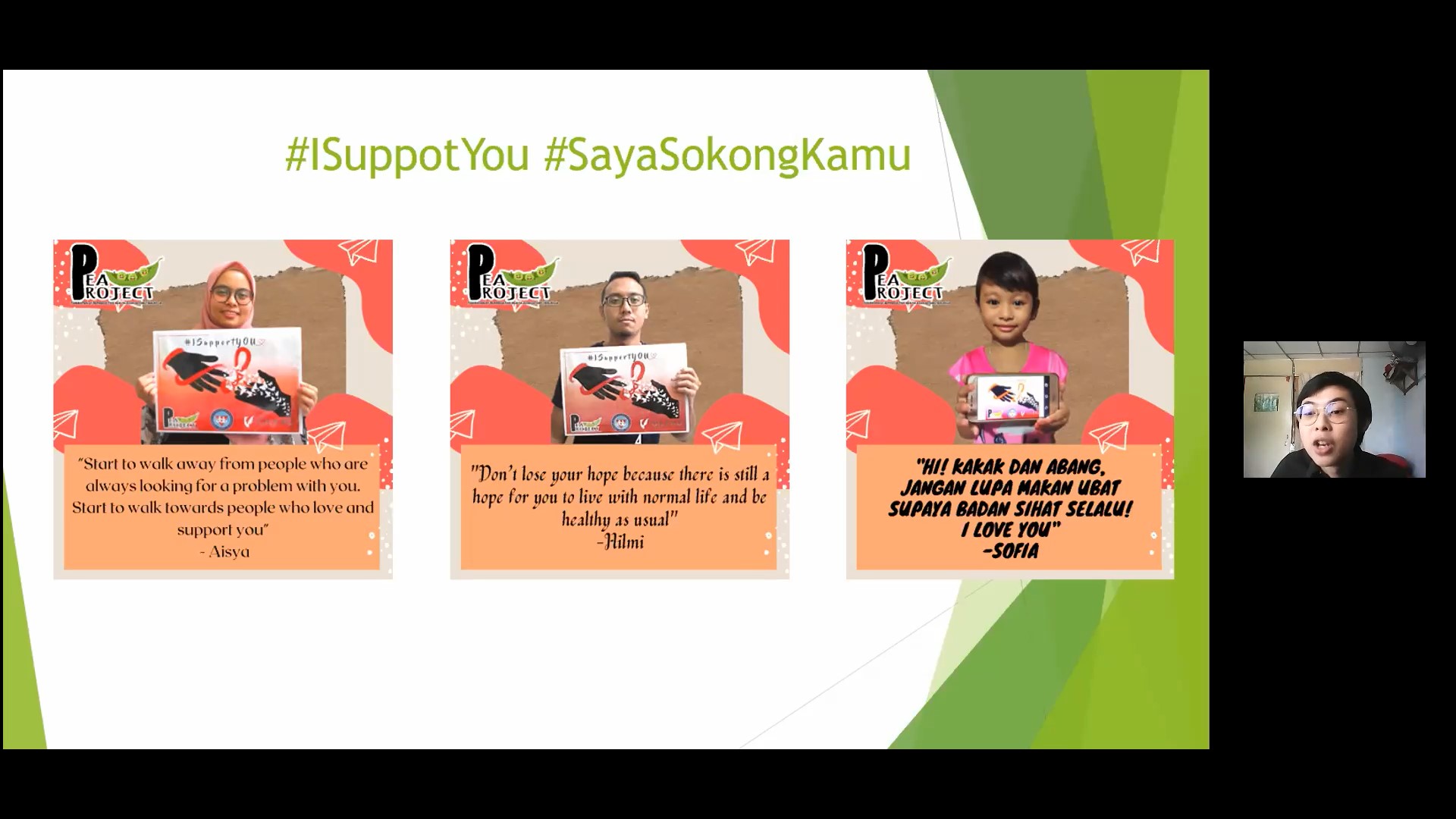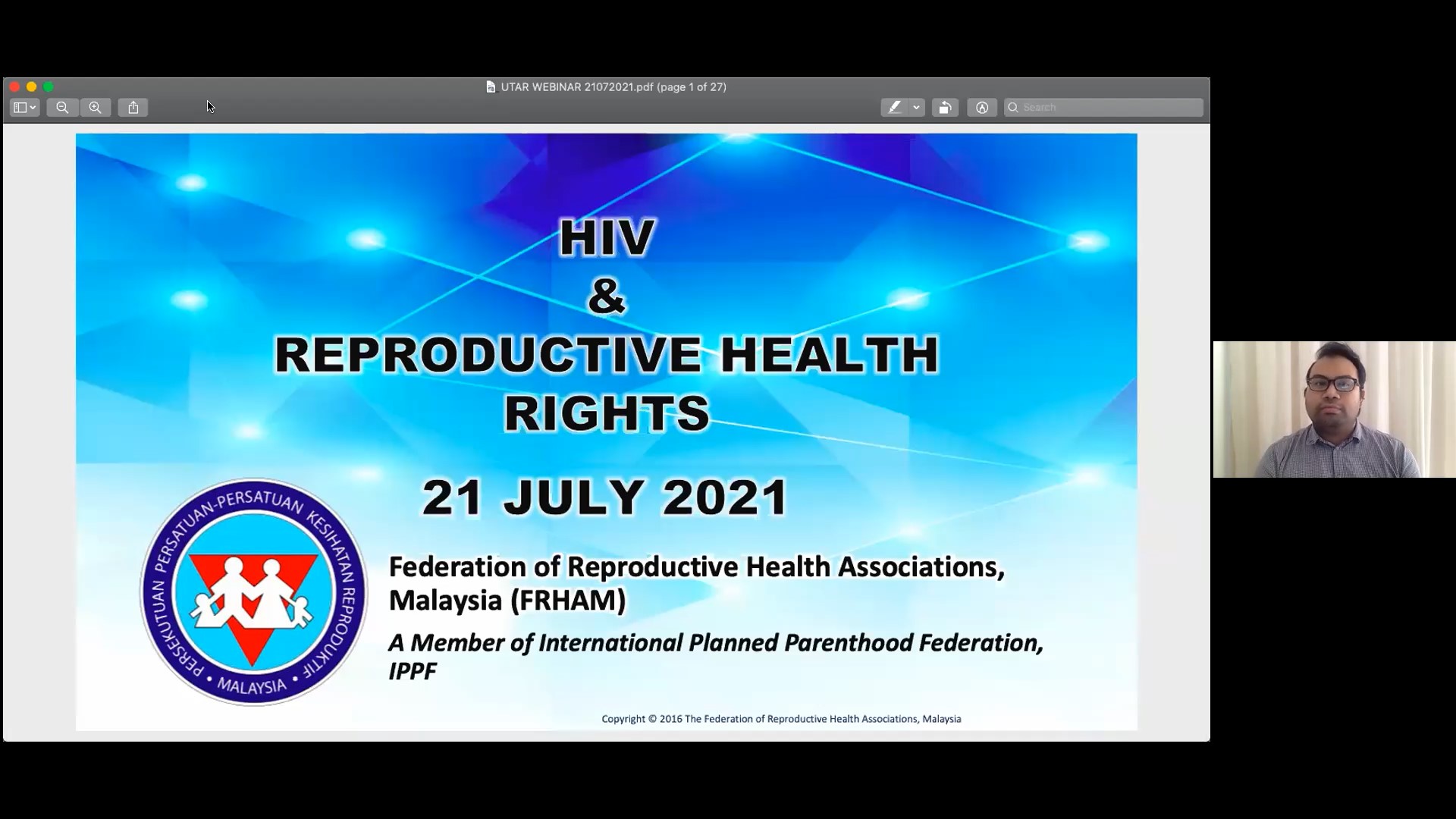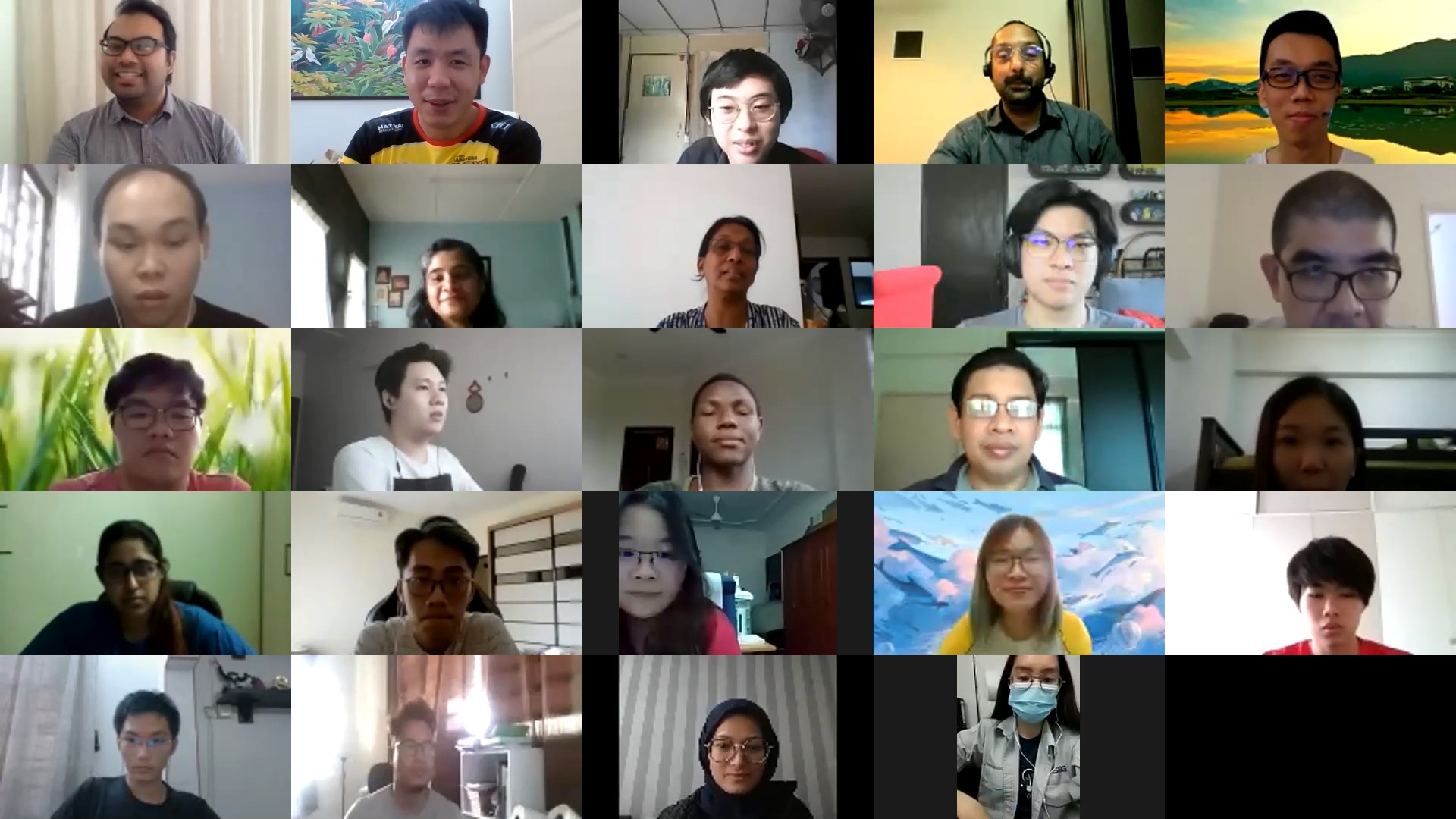
CFS educates students on HIV and reproductive health rights

The poster of the webinar
The Centre for Foundation Studies (CFS) of Kampar Campus organised a webinar titled “HIV and Reproductive Health Rights” on 21 July 2021 via Zoom. The webinar, which was part of CFS students’ development initiatives, received over 160 participants in attendance.
The invited speakers were from the Federation of Reproductive Health Associations, Malaysia (FRHAM) Programme, Project and Youth Officer Jeremy Tan Fok Jun and FRHAM Head of Programmes and Projects Mohd Fadzrel Abu Bakar. The webinar was moderated by CFS lecturer Lionel Keith Vytialingam.
The objective of the webinar was to create awareness on the causes of HIV and its prevention as well as promoting healthy and safe lifestyles to the participants.
Tan began the webinar by defining Human Immunodeficiency Virus (HIV) and explaining the difference between HIV and Acquired Immune Deficiency Syndrome (AIDS). He said, “These two terms— HIV and AIDS are frequently used interchangeably without realising the real meaning, thus creating confusion and misinformation. HIV is a virus that attacks the immune system. Besides, HIV refers to the etiological agent that causes AIDS. The white blood cells (immune system) will stay infected and if left untreated, HIV will develop into AIDS. AIDS is a term that can only be used when HIV has caused severe damage to the immune system.”
Furthermore, he highlighted how the HIV symptoms spread. In contrary to popular beliefs, he elucidated the HIV does not spread easily by hugging, shaking hands, sharing eating utensils, physical touch or mosquito bites. To support his statement, he provided comprehensive and multifaceted views of the AIDS results amidst the pandemic in Malaysia and dismissed the illness myth with a data statistics report. “In the past, the transmission of HIV mainly happened through illegal and unsafe drug injection, but today, most of the transmission occurs due to unsafe sexual transmission activity. The numbers of infections transmitted through heterosexual intercourse have increased from 45% from cases in the year 2012 to 51% in the year 2013,” Tan explained. Before ending his talk, he encouraged the participants to participate in HIV advocacy and activism works.
The session was then continued by the second speaker, Fadzrel. Fadzrel enlightened participants about the concept of Comprehensive Sexual Education (CSE) where it is based on a rights-based approach that focuses on encouraging the younger generation to view sexuality holistically as well as providing them with the right knowledge, skills, attitudes and values towards sexuality aspects.
“There are seven essential components on CSE, namely gender, reproductive health, sexual rights, pleasure, violence, diversity and relationships. In addition, it is important for every individual to understand the Sexual and Reproductive Health and Rights (SRHR) and how it is implemented in Malaysia. SRHR is universal and it is an undeniable human right that is free from discrimination, violence and abuse. The SRHR in Malaysia is governed by both the government and NGOs. The focuses of SRHR are categorised as 5A’s, namely advocacy, adolescent, aids, abortion and access,” Fadzrel clarified.
Moreover, he highlighted the types of sexually transmitted disease (STD) and said the best prevention from STD is through the use of protections, abstinence, and informative sex education from parents. Nevertheless, due to the rising sexual violence and crime statistics during the recent years, added with the social stigma and taboos, many of these crimes went into silence and unreported. Fadzrel advised the participants that the victims should be encouraged to make an official report to the authority to ensure that their safety and justice are taken care of.
Overall, this talk was an insightful eye-opener for the participants to see and understand how the related organisations have contributed to educate people on healthy sex education as a way to prevent risky diseases and crimes.
The interactive webinar ended with Q&A and group photograph sessions. This webinar is associated with Sustainable Development Goals (SDGs) 3 Good Health and Well-Being, which promotes a healthy lifestyle. Furthermore, it also focuses on SDG 4 Quality Education, which reflects the lifelong learning opportunities for everyone; and SDG 5 Gender Equality, leading to achievements in gender equality as well as promoting empowerment for all women and girls to live in a safe environment.

Tan advising participants to be good supporters

Fadzrel delivering his opening speech

A group photograph at the end of the webinar
![]()
![]()
![]()
© 2021 UNIVERSITI TUNKU ABDUL RAHMAN DU012(A).
Wholly owned by UTAR Education Foundation (200201010564(578227-M)) LEGAL STATEMENT TERM OF USAGE PRIVACY NOTICE